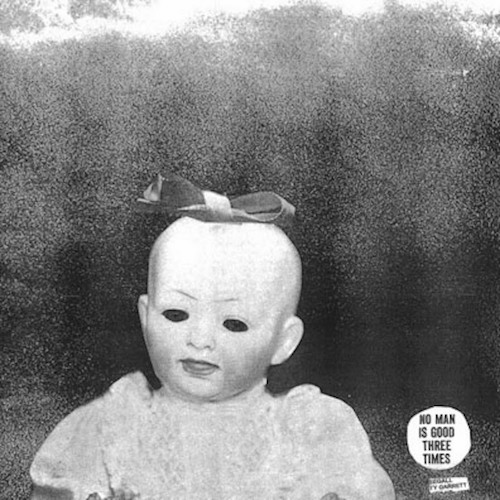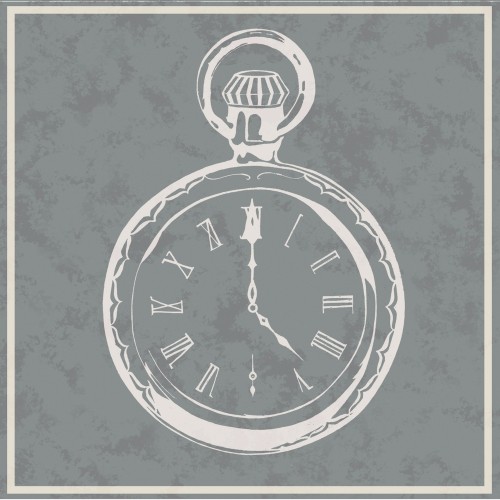 Release Date: August 16, 2011
Release Date: August 16, 2011





It must be tough on a band to watch a former member attain much more elevated praise than you will ever hope to receive. A recent example of this might be From First To Last, a miserable band who lost their frontman Sonny Moore to dubstep. Lo and behold, Moore turned into Skrillex, arguably dubstep’s breakout star of 2011. However, it’s doubtful that FFTL accurately feel this dynamic since after all, they sucked (and Skrillex sucks), and their drug problems and band turmoil were well documented before the split. The fact that Skrillex is famous probably means nothing to the druggy burnouts of FFTL.
But for The War on Drugs, Kurt Vile’s success has got to smart just a little. The experimental folk-rock band created by now lead vocalist Adam Granduciel originally featured Vile until he left to pursue a solo career. Now, years later, Vile has become something of a folky guitar hero whose festival star is just beginning to rise. The War on Drugs, on the other hand, has lingered in a B-band stasis since their inception, with nary a headlining tour to support them. One might wonder why such a revolving door of talented musicians wouldn’t grow more popular with time. But Slave Ambient, the trio’s second LP, gives them away; while The War on Drugs may possess an eminent roots-rock sensibility, they sorely lack an ability to create dynamic songs, instead crafting overlong grooves that wear a little thin on repeated listens.
The strange part of Slave Ambient is how much it resembles, in format, tone and theme, Vile’s excellent 2011 LP Smoke Ring For My Halo. The same thin-string riffing done on Vile’s “In My Time” is replicated on TWoD’s “It’s Your Destiny,” and many of the pedal shifts and chord structures make appearances on both albums. Strangest may be Vile and Granduciel’s almost identical vocal timbres; both casually resemble retro-Bob Dylan or Nebraska-era Springsteen: shaky and twang-laden, but with a welcome dash of modern assuredness. It’s easy to see how Granduciel and Vile would have been in a band together, considering the vocal similarities as well as the two’s remarkable lyrical similarity (“Your Love is Calling My Name” is just about a twin to “Jesus Fever”), but their differences are right on the surface, as well. What makes Smoke Ring For My Halo so brilliant is the intimate knowledge of dynamics and song structure; Slave Ambient exhibits little of this.
With the exception of “Baby Missiles,” a fantastic Springsteen-listening-to-Achtung Baby raver, TWoD is almost exclusively in the folk-pop mold, and doesn’t stray from piled-upon guitar riffs, splashy synth and minimalist drum boom-bap very often.
The consistency is comforting, but Slave Ambient is more comfortably consumed one song at a time, since the repeated song structure wears very thin and can mar the experience of listening to good songs like “Black Water Falls” too late. Within songs the problem is the same; My Bloody Valentine-esque “ramblin’” song “Come to the City” would be a standout if it went anywhere. Instead, we get the same riff, the same verse structure, and the same chords for four-and-a-half minutes, which is tiring in itself. TWoD is a band capable of making very satisfying folk-pop; opener “Best Night” is the best example, even if this is just more proof that Ambient’s early songs play better because of the newness of the trope TWoD beats into the ground. And in that context, Slave Ambient satisfyingly studies an interesting paradigm, even if it’s one that won’t get them any more recognition. The real shame, then, is TWoD’s inability to stray from that ideal.
The War On Drugs – Slave Ambient
- “Best Night”
- “Brothers”
- “I Was There”
- “Your Love Is Calling My Name”
- “The Animator”
- “Come To The City”
- “Come For It”
- “It’s Your Destiny”
- “City Reprise #12”
- “Baby Missiles”
- “Original Slave”
- “Black Water Falls”


